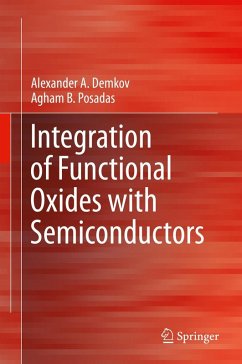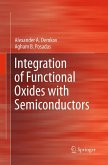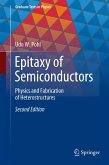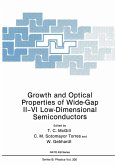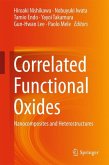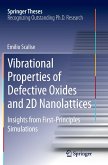This book describes the basic physical principles of the oxide/semiconductor epitaxy and offers a view of the current state of the field. It shows how this technology enables large-scale integration of oxide electronic and photonic devices and describes possible hybrid semiconductor/oxide systems. The book incorporates both theoretical and experimental advances to explore the heteroepitaxy of tuned functional oxides and semiconductors to identify material, device and characterization challenges and to present the incredible potential in the realization of multifunctional devices and monolithic integration of materials and devices. Intended for a multidisciplined audience, Integration of Functional Oxides with Semiconductors describes processing techniques that enable atomic-level control of stoichiometry and structure and reviews characterization techniques for films, interfaces and device performance parameters. Fundamental challenges involved in joining covalent and ionic systems, chemical interactions at interfaces, multi-element materials that are sensitive to atomic-level compositional and structural changes are discussed in the context of the latest literature. Magnetic, ferroelectric and piezoelectric materials and the coupling between them will also be discussed. GaN, SiC, Si, GaAs and Ge semiconductors are covered within the context of optimizing next-generation device performance for monolithic device processing.
Bitte wählen Sie Ihr Anliegen aus.
Rechnungen
Retourenschein anfordern
Bestellstatus
Storno

